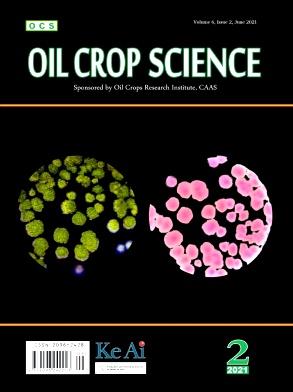双重纳米乳液,稳定维生素C,增强抗氧化能力,含有夏威夷果油和茶树精油
Q3 Agricultural and Biological Sciences
引用次数: 0
摘要
维生素C是一种有效的抗氧化剂,具有广泛的治疗应用,在环境压力下迅速降解,这损害了它的稳定性和生物活性。本研究通过均质化和相转化温度(PIT)技术,将夏威夷果油和茶树油结合,形成双纳米乳液(W/O/W)体系,解决了这些限制。全面的物理化学表征,包括液滴大小、多分散性指数(PDI)、zeta电位、浊度、傅立叶变换红外光谱(FTIR)和扫描电镜,以及在不同pH、温度和储存条件下的稳定性评估。优化后的纳米乳液具有纳米级液滴尺寸(10-40 nm)、低PDI值(表明高均匀性)和稳定的稳定性。当W/O含量为2%,粒径为11.57 nm, PDI为0.04时,其抗氧化能力为4622.62 μg抗坏血酸当量(AA)/g,显著高于天然油(夏威夷果油:20.91 μg AA/g,茶树油:16.86 μg AA/g)和10%维生素C水溶液(592.94 μg AA/g) (p < 0.05)。FTIR分析证实了维生素C的分子完整性及其与夏威夷果和茶树油的成功包封,而SEM图像显示了均匀的球形和分散良好的液滴。此外,该配方在不同的pH和热条件下仍保持其结构完整性和抗氧化功能。这些发现强调了双纳米乳液系统克服维生素C稳定性挑战的潜力,为提高其在制药和化妆品应用中的生物利用度和治疗性能提供了一种有前途的方法。本文章由计算机程序翻译,如有差异,请以英文原文为准。
Double nano-emulsions for stabilizing Vitamin C and enhancing antioxidant capacity with macadamia oil and tea tree essential oil
Vitamin C, a potent antioxidant with broad therapeutic applications, is limited by rapid degradation under environmental stressors, which compromises its stability and bioactivity. This study addresses these limitations by formulating a double nano-emulsion (W/O/W) system incorporating macadamia oil and tea tree oil, using homogenization and phase inversion temperature (PIT) techniques. Comprehensive physicochemical characterization, including droplet size, polydispersity index (PDI), zeta potential, turbidity, Fourier transform infrared spectroscopy (FTIR), and SEM, was conducted alongside stability assessments under varying pH, temperature, and storage conditions. The optimized nano-emulsions exhibited nanoscale droplet sizes (10–40 nm), low PDI values (indicating high uniformity), and robust stability. Interestingly, the formulation with 2% W/O loading, with a particle size of 11.57 nm and a PDI of 0.04, demonstrated an antioxidant capacity of 4622.62 μg ascorbic acid equivalents (AA)/g, which was significantly higher (p < 0.05) compared to both natural oils (macadamia oil: 20.91 μg AA/g, tea tree oil: 16.86 μg AA/g) and a 10% Vitamin C aqueous solution (592.94 μg AA/g). FTIR analysis confirmed the molecular integrity of Vitamin C and its successful encapsulation with macadamia and tea tree oils, while SEM images revealed uniformly spherical and well-dispersed droplets. Moreover, the formulation retained its structural integrity and antioxidant functionality under diverse pH and thermal conditions. These findings underscore the potential of double nano-emulsion systems to overcome the stability challenges of Vitamin C, offering a promising approach to enhance its bioavailability and therapeutic performance in pharmaceutical and cosmetic applications.
求助全文
通过发布文献求助,成功后即可免费获取论文全文。
去求助
来源期刊

Oil Crop Science
Food Science, Plant Science, Agronomy and Crop Science
CiteScore
3.40
自引率
0.00%
发文量
20
审稿时长
74 days
 求助内容:
求助内容: 应助结果提醒方式:
应助结果提醒方式:


